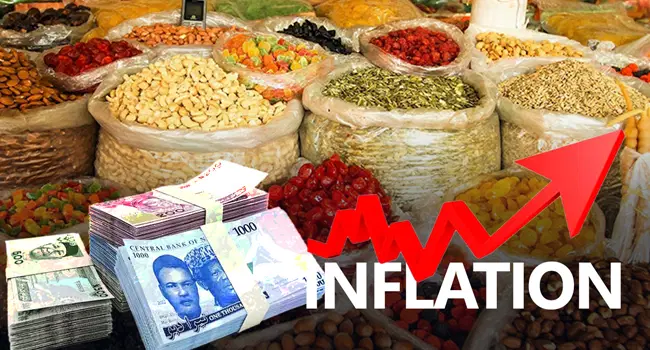Nigeria’s inflation rate surged to 33.88% in October 2024, marking an increase from 32.7% recorded in September.
This reflects a month-on-month rise of 1.18 percentage points, according to the latest Consumer Price Index (CPI) report by the National Bureau of Statistics (NBS).
The NBS attributed the inflation spike to higher transportation costs and escalating food prices, both of which significantly impacted the economy.
Year-on-Year Analysis
On an annual basis, the headline inflation rate for October 2024 was 6.55 percentage points higher than the 27.33% reported in October 2023. This demonstrates a notable increase in the general price level when compared to the same period last year.
Month-on-month, the inflation rate climbed to 2.64% in October 2024, slightly above the 2.52% recorded in September. This indicates that price levels rose at a faster pace in October compared to the preceding month.
Rising Food Inflation
Food inflation also experienced a sharp rise, hitting 39.16% in October 2024 on a year-on-year basis, which is 7.64 percentage points higher than the 31.52% recorded in October 2023.
The NBS noted that the year-on-year increase in food inflation was driven by higher prices of essential items such as:
– Cereals: Guinea corn, rice, and maize grains.
– Tubers: Yam, water yam, and coco yam.
– Oils and Fats: Palm oil and vegetable oil.
– Beverages: Milo, Lipton, and Bourvita.
On a month-on-month basis, food inflation rose by 2.94% in October, representing a 0.30 percentage point increase from the 2.64% recorded in September.
The rise was attributed to price hikes in categories such as:
– Oil and Fats: Palm oil and vegetable oil.
– Fish: Mudfish, croaker, and fresh fish.
– Meat: Dried beef, goat meat, mutton, and skin meat.
– Cereals and Flours: Bread, guinea corn flour, plantain flour, and rice.
Average Annual Food Inflation
The average annual food inflation rate for the 12 months ending October 2024 was 38.12%, marking an 11.79 percentage point increase compared to the 26.33% recorded for the same period in 2023.
This rising trend underscores the continued pressure on households and businesses, as essential goods and services become increasingly unaffordable.











